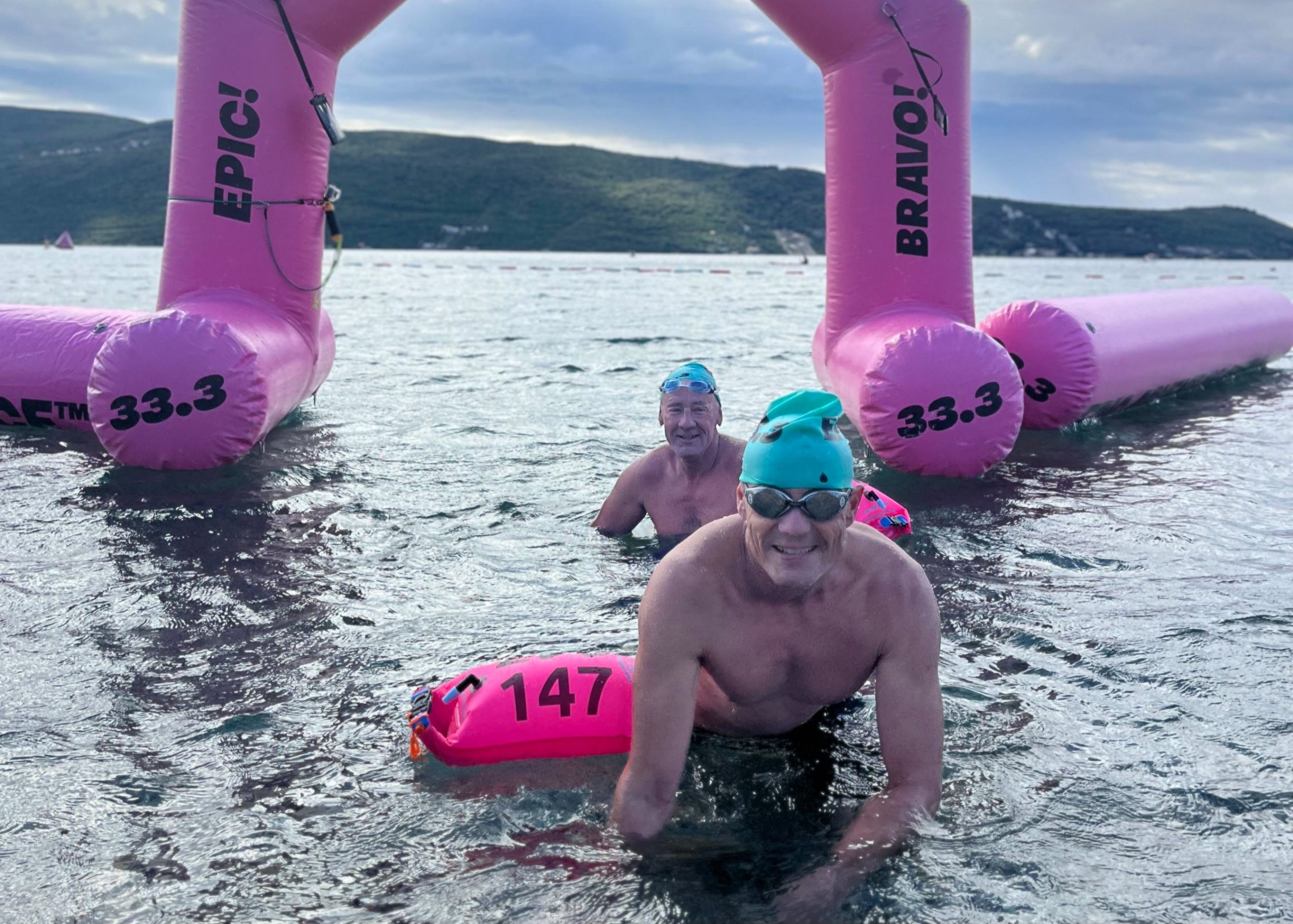Worries and doubts are good: they help you up your game
It’s day 3 of Ultraswim 33.3 in Montenegro and about to tackle the longest swim of the event – an 11km swim along the Luštica Peninsula. The water temperature is around 21 to 22 degrees, but will be colder in parts due to mountain streams entering the sea. While it’s calm now, the wind is expected to pick up later.
I’m already tired after swims of around 7 and 8km on the previous days. I’d been cold at the end of both. I’d likely be in the water for an hour or so longer than previously. My biggest worry was the cold, not the distance. I was confident I could keep going if I could stay warm. But I have previous experience of hypothermia on marathon swims in these temperatures.
Should I put on my wetsuit? I wondered.
Bad experience
The question was complicated by my history with this event.
Two years ago, I came to Montenegro fully confident that I could swim 33.3km in four days. I knew it would be hard work and tiring, but it didn’t occur to me that I might fail.
On the second day’s swim, I started feeling dizzy after a few hundred metres. I slowed down and completed the swim, but it was a massive battle. I struggled to breathe throughout and felt wiped out by the end – I probably should have stopped much earlier. My breathing didn’t return to normal for about a week, and I had no choice but to withdraw from the rest of the event. We never uncovered what caused the problem. It may have been Swimming Induced Pulmonary Oedema (SIPE) – a dangerous and potentially fatal condition where fluid builds up in the lungs – but this couldn’t be confirmed. However, we had a theory that wearing a tight wetsuit may have been a factor.
Back to 2025. The day before, I had repeated the swim that had made me ill two years previously. I swam without a wetsuit. I was worried at the beginning and started cautiously, but soon found myself enjoying the swim. My breathing was completely fine. But I was cold.
Choices
So what should I do for this next, longer, swim? Wear the wetsuit to stay warm and risk another breathing episode, or swim without the wetsuit and risk getting too cold?
In reality, the risk of repeating the breathing problems was probably low. I’ve done several long swims in a wetsuit without problems since the first incidence. But I still had the psychological issue of linking breathing problems to this event.
I decided to swim without – and it went well. Yes, I got cold in the middle where the water temperature dropped and I had a good shiver at the end, but I swam strongly, stuck to my feeding plan and held my pace throughout. More importantly, I enjoyed the swim and, after about 7km, became increasingly optimistic that I would finish.
How confident should you be?
My experience brings us to the broader and more interesting question: how confident of success should you be before embarking on a swim?
It’s important to remember that we can never be 100% confident. We may get ill or succumb to injury. I once saw someone pull out of a 50m sprint after 25m as they got cramp. Then there are factors outside of your control, especially in open water: sudden weather changes, wildlife encounters, incidents with other water users.
On the other hand, I’ve seen people start swims where they’ve had zero chance of completing – they just wanted to see how far they could get before the time cut-off. This is perfectly acceptable in some scenarios, but should obviously be cleared with the event organiser in advance.
No single or simple answer
This gives us a huge range, and each swim will have a different answer. We need to look at the consequences. If failure simply means we get picked up by a support boat and shipped to the finish, it’s not a big deal. But if failure means hypothermia or inconvenience to other people, then you should only embark on the swim if you think you have a high chance of completing it.
It’s worth bearing in mind that our confidence (or lack thereof) may be misguided. I’ve abandoned swims I was very confident about completing, and completed swims I had doubts about. But each time this happens is an opportunity to refine your future assessments.
Remember that doubts are a good thing. They are prompts to encourage you to take action. What can you do to improve your chances? For my 11km swim in Montenegro, these actions included staying warm before the start, eating something every 30 minutes, and trying to keep the effort level high to generate heat.
While there is no simple or universal answer to the question of how confident you should be before starting a swim, it’s still worth asking. It will prompt you to think through the consequences of not completing and how you can improve your chances.
Renaissance Swimmer Reflection
Uncertainty is part of every swim, and that’s a good thing. Doubts aren’t weaknesses; they’re prompts to prepare better and adapt. Before your next big swim, ask yourself:
- What’s my confidence level, and why?
- What actions can I take to improve my chances?
- How will I adapt if things don’t go to plan?
Every experience, whether you finish or not, is an opportunity to refine your judgment and grow as a swimmer. That’s part of the Renaissance Swimmer mindset: learn, adapt, and keep moving forward.
Image (c) Ultraswim 33.3 – Finishing Ultraswim 33.3 #10Montenegro, October 2025

